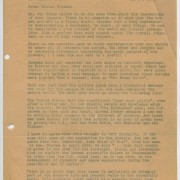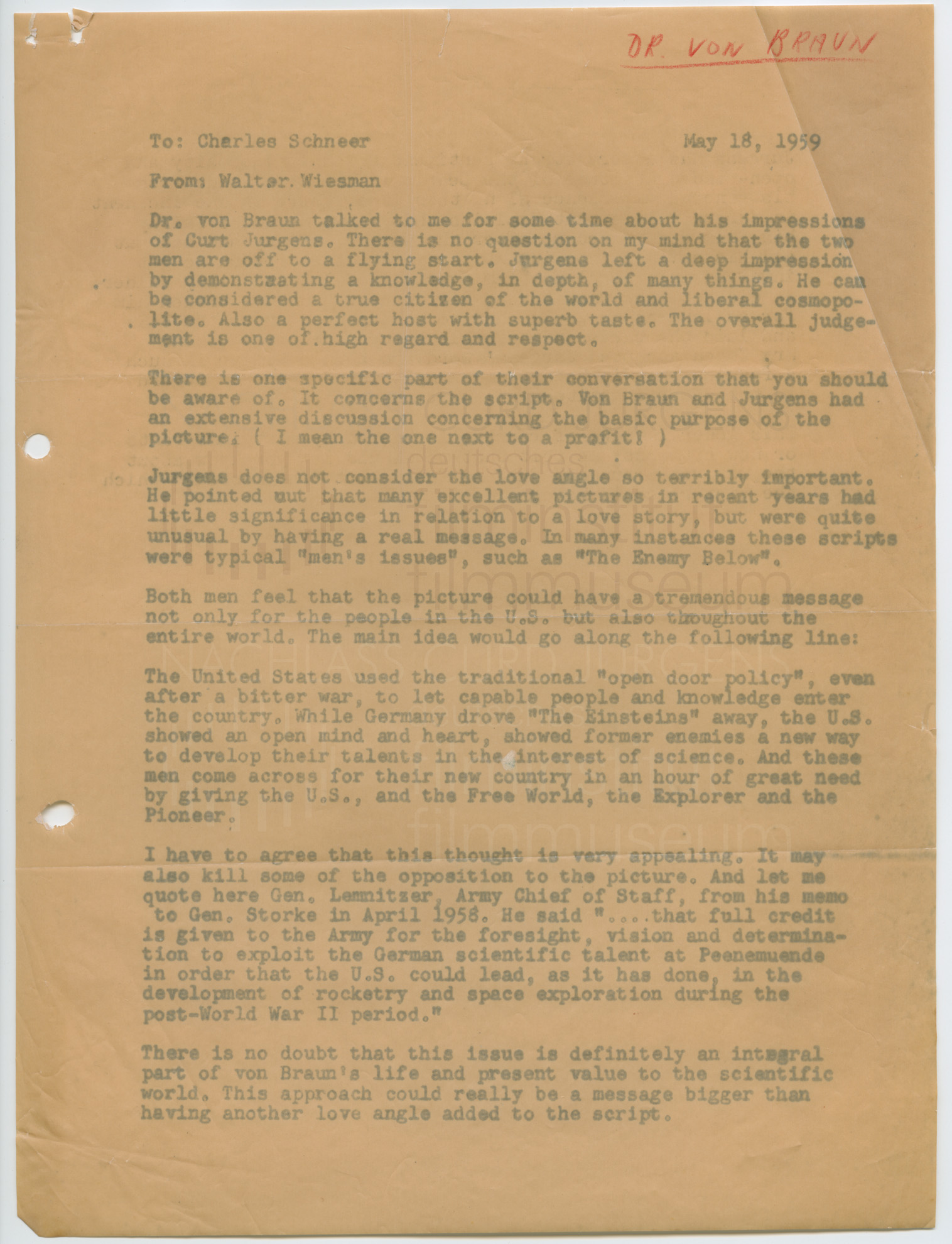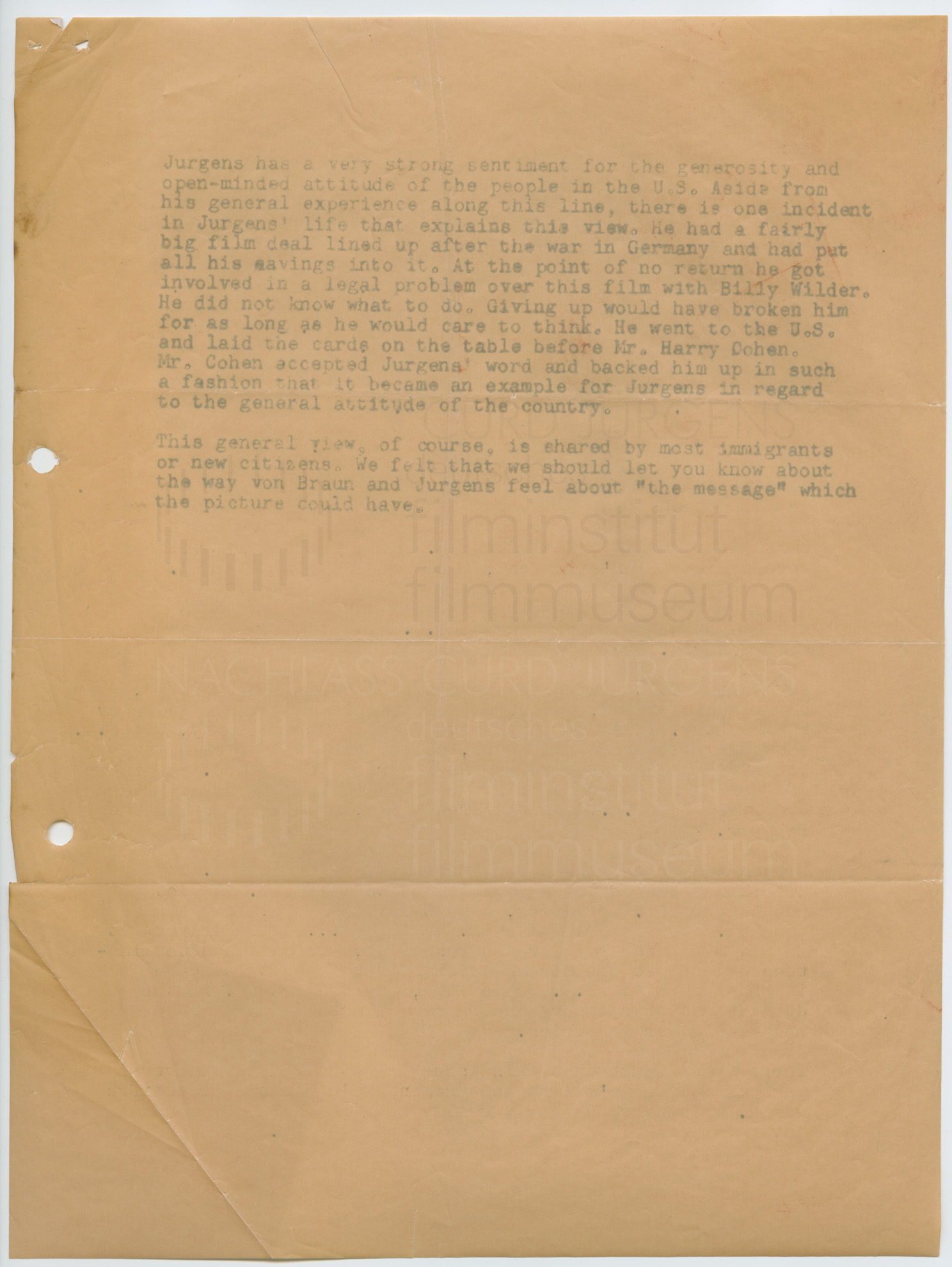WERNHER VON BRAUN – I AIM AT THE STARS (1960) Walter Wiesman an Charles Schneer, 18.5.1959
To: Charles Schneer
From: Walter Wiesman
Dr. von Braun talked to me for some time about his impressions of Curt Jurgens. There is no question on my mind that the two men are off to a flying start. Jurgens left a deep impression by demonstrating a knowledge, in depth, of many things. He can be considered a true citizen of the world and liberal cosmopolite. Also a perfect host with superb taste. The overall judgement is one of high regard und respect.
There is one specific part of their conversation that you should be aware of. It concerns the script. Von Braun and Jurgens had an extensive discussion concerning the basic purpose of the picture. ( I mean the one next to a profit! )
Jurgens does not consider the love angle so terribly important. He pointed out that many excellent pictures in recent years had little significance in relation to a love story, but were quite unusual by having a real message. In many instances these scripts were typical “men’s issues”, such as “The Enemy Below”.
Both men feel that the picture could have a tremendous message not only for the people in the U.S. but also throughout the entire world. The main idea would go along the following line:
The United States used the traditional “open door policy”, even after a bitter war, to let capable people and knowledge enter the country. While Germany drove “The Einsteins” away, the U.S. showed an open mind and heart, showed former enemies a new way to develop their talents in the interest of science. And these men come across for their new country in an hour of great need by giving the U.S., and the Free World, the Explorer and the Pioneer.
I have to agree that this thought is very appealing. It may also kill some of the opposition to the picture. And let me quote here Gen. Lemnitzer, Army Chief of Staff, from his memo to Gen. Storke in April 1958. He said “….that full credit is given to the Army for the foresight, vision and determination to exploit the German scientific talent at Peenemuende in order that the U.S. could lead, as it has done, in the development of rocketry and space exploration during the post-World War II period.”
There is no doubt that this issue is definitely an integral part of von Braun’s life and present value to the scientific world. This approach could really be a message bigger than having another love angle added to the script.
Jurgens has a very strong sentiment for the generosity and open-minded attitude of the people in the U.S. Aside from his general experience along this line, there is one incident in Jurgens’ life that explains this view. He had a fairly big film deal lined up after the war in Germany and had put all his savings into it. At the point of no return he got involved in a legal problem over this film with Billy Wilder. He did not know what to do. Giving up would have broken him for as long as he would care to think. He went to the U.S. and laid the cards on the table before Mr. Harry Cohen. Mr. Cohen accepted Jurgens’ word and backed him up in such a fashion that it became an example for Jurgens in regard to the general attitude of the country.
This general view, of course, is shared by most immigrants or new citizens. We felt that we should let you know about the way von Braun and Jurgens feel about “the message” which the picture could have.







Laisser un commentaire
Rejoindre la discussion?N’hésitez pas à contribuer !